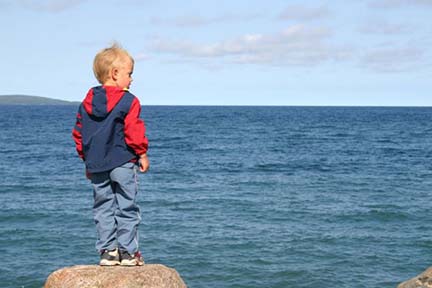
EGLE: grants to drive Lake Michigan Circuit program
|
|
|
|

|
|
|
|

|
|
|||||||
 |
|||||||
News Release |
|||||||
|

|
|
|
|

|
|||
|
|
|||
| Dear constituent,
With wildfire season underway, here is some important information about reducing your exposure and protecting your health. Summer wildfires are becoming increasingly more common in the U.S. and Canada. Even though large wildfires may occur hundreds or thousands of miles away, last summer showed us that we need to be prepared for severe smoke here in Michigan. As of June 24, 2024, Canada reported 179 active wildfires, and the smoke from these fires has already prompted health warnings in multiple states. Similar to last year, we expect smoke from Canada to affect Michigan, leading to poor air quality. While most symptoms of wildfire exposure are mild, exposure can weaken the immune system and may also exacerbate or increase the risk of asthma, lung cancer, and other chronic lung diseases. Here are steps you can take to protect yourself and your family from wildfire smoke and air pollution:
Lastly, you can visit the EPA and CDC websites for more detailed information and tips on how to stay safe if wildfire smoke ends up affecting us here in Michigan this summer. – Office of Rep. Elissa Slotkin |
|||


FOR IMMEDIATE RELEASE
June 27, 2024 Contact: [email protected]
Gov. Whitmer Accepts Invitation to Join White House Initiative to Conserve and Restore Freshwater Resources: America the Beautiful Freshwater Challenge The challenge establishes a national partnership to conserve and restore America’s rivers, lakes, streams, and wetlands.
LANSING, Mich. – Today, Governor Whitmer announced that Michigan is joining the inaugural list of over 160 partners participating in the White House’s America the Beautiful Freshwater Challenge. The initiative sets new national goals for wetland, river, and stream reconnection, restoration, and conservation, and calls on states, territories, Tribes, local governments, businesses, and non-governmental organizations to advance their own actions in support of these shared goals.
The Freshwater Challenge complements Governor Whitmer’s ongoing initiatives to protect our Lakes—both Great and small—rebuild Michigan’s water infrastructure, protect access to clean drinking water, and respond to climate change, as outlined in the MI Healthy Climate Plan. The challenge also aligns with many of the initiatives of the Great Lakes St Lawrence Governors and Premieres, a group that the governor chairs.
“We are thrilled to join the Biden-Harris administration’s ‘America the Beautiful Freshwater Challenge,’” said Governor Whitmer. “As home to the Great Lakes, which contain 21% of the world’s fresh surface water, we are committed to protecting our precious natural resources. Water is integral to our economy and our way of life, and we all have a responsibility to protect it for future generations. Since I took office, my administration has worked across the aisle to make record investments in land and water conservation and water infrastructure. The Freshwater Challenge offers us new opportunities to build on our work of protecting our natural resources while expanding economic opportunity. I will work with anyone to protect our water resources. Let’s get it done.”
“Whether it’s reducing pollution, restoring wetlands, or enhancing shorelines, the Michigan Department of Environment, Great Lakes, and Energy is up to the challenge of protecting Michigan’s freshwater resources,” said EGLE Director, Phil Roos. “Michigan’s unmatched water resources literally define our state, giving all Michiganders a unique responsibility to steward them. Under Governor Whitmer’s leadership, Michigan has seen unprecedented investments in water infrastructure, protection, and revitalization projects but there is so much more to do. Michigan’s waters will always face challenges, but the constant among the challenges is Michiganders’ resolve to make a difference through collaboration and innovation.”
Michigan’s unmatched access to freshwater has enabled our state to become a leader in advancing equity, creating good-paying jobs, increasing economic opportunities, and improving quality of life. The challenge reaffirms Michigan’s commitment to protecting freshwater resources at home, across the Great Lakes region, and throughout the country.
Water Investments Since 2019, the Whitmer-Gilchrist administration has invested more than $4 billion to rebuild and modernize Michigan’s water infrastructure, including removing lead service lines, reducing toxic contaminants like PFAS, and mitigating sewer overflows. The governor has also signed bills that make it easier for communities to access funding for infrastructure projects, ensuring resources go to the communities who need them most.
Recently, the administration made record investments to protect the Great Lakes from pollution and invasive species, revitalize wetlands, protect ground water resources, restore rivers, and more.
The administration has also aggressively leveraged resources for water infrastructure and protection projects thanks to Michigan’s hardworking congressional delegation’s work to pass the Bipartisan Infrastructure Law, and other federal opportunities like the Great Lakes Restoration Initiative.
MI Healthy Climate Plan The MI Healthy Climate Plan (MHCP) is the state’s climate action roadmap that charts a path to a more prosperous, healthy, equitable, carbon-neutral future by 2050 with interim emissions reductions in 2025 and 2030. The MHCP outlines steps to meet the state’s 2030 climate goals. It includes key recommendations around protecting Michigan’s land and water resources, including a promise to protect 30% of Michigan’s land and water by 2030, protect and restore existing wetlands and waterways, create new wetlands—where appropriate—and more.
In recent years, the state has made incredible progress toward the goals of the MHCP. While the Department of Environment, Great Lakes, and Energy (EGLE) is responsible for the overall implementation of the plan, work extends across multiple departments. This includes the Michigan Department of Natural Resources’ (DNR) work on the Michigan the Beautiful initiative where DNR is working with diverse partners to conserve, connect, and restore 30 percent of Michigan’s land and water by 2030.
|

|
|
|
|